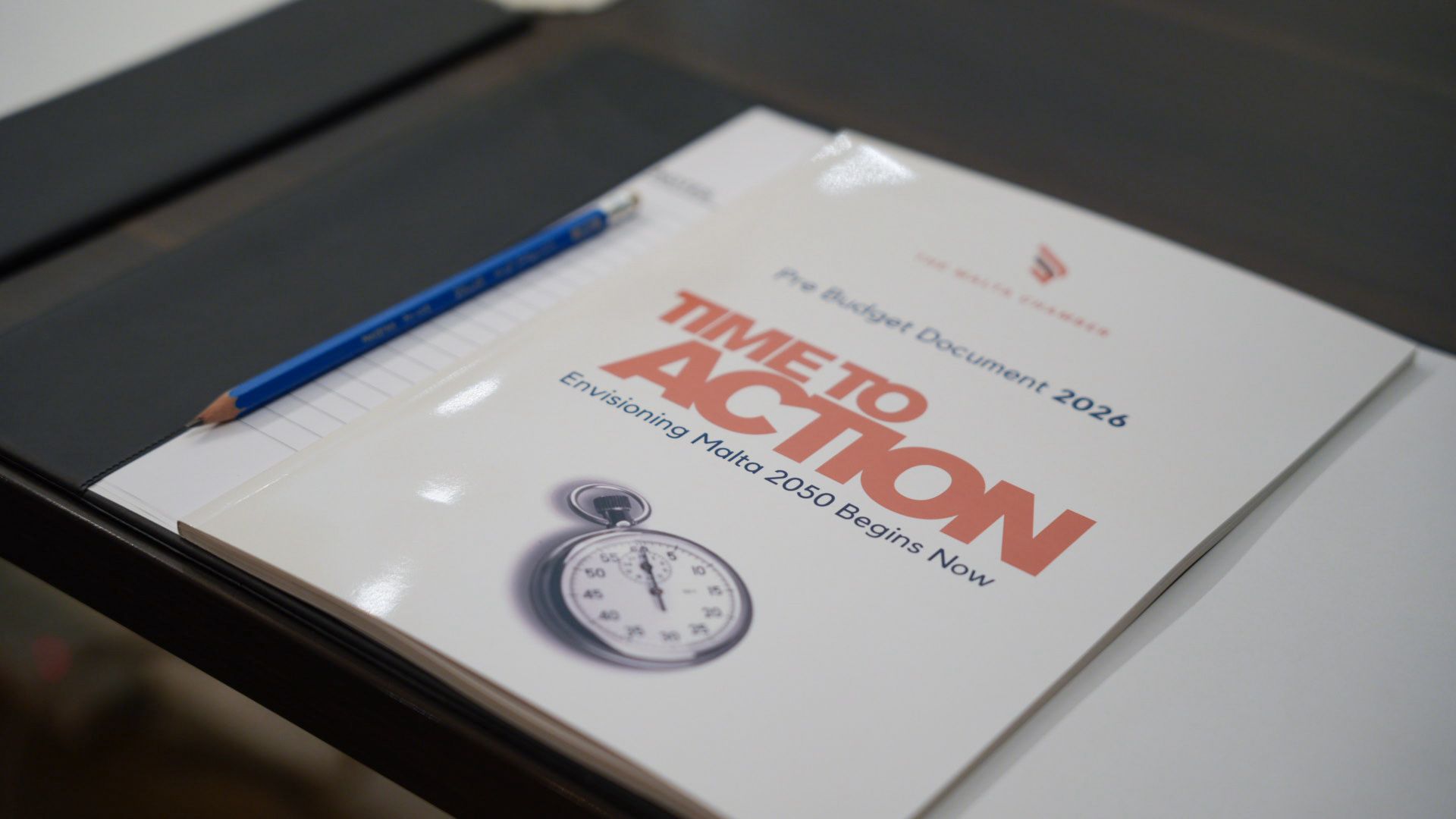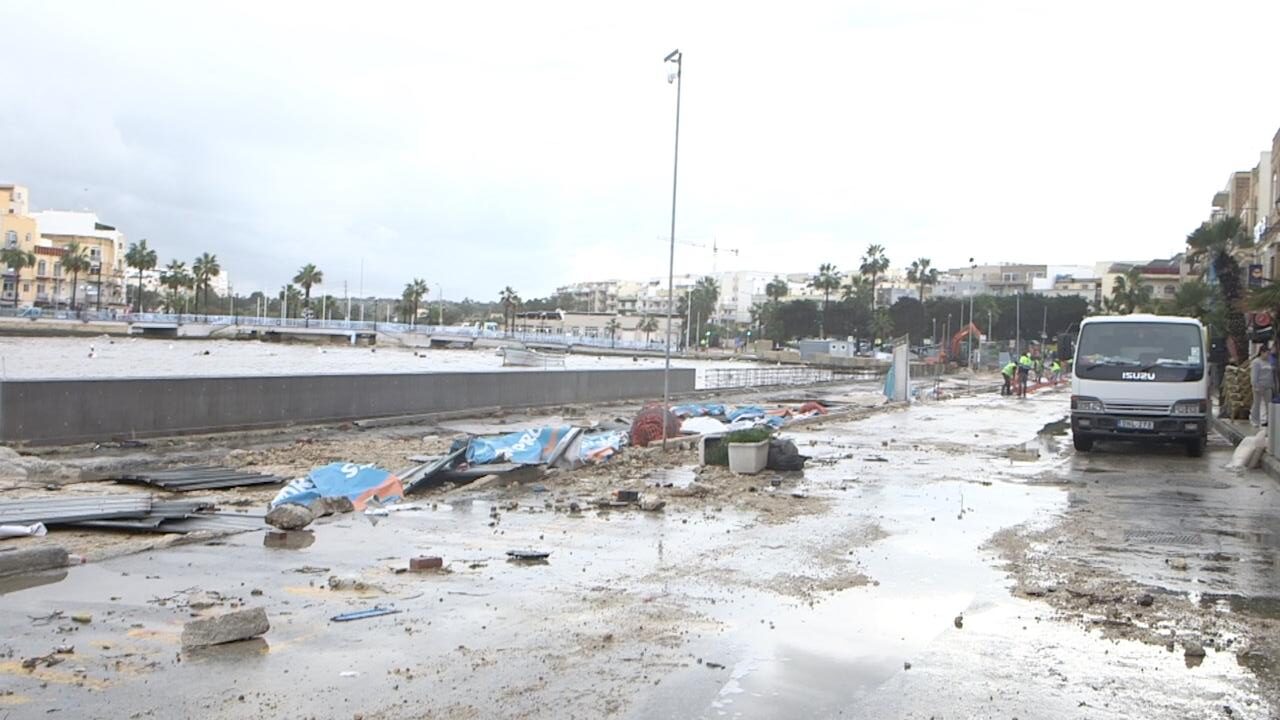The Malta Chamber of Commerce, Enterprise and Industry has proposed that businesses which consistently file and pay their taxes on time should benefit from a fairer and lower tax burden, as part of its Pre-Budget 2026 recommendations.
The Chamber argued that a smarter tax collection system, coupled with targeted incentives, would not only reward compliance but also improve cashflow for ethical operators while discouraging evasion.
The Chamber is also calling for various urgent reforms to address long-standing structural challenges that it says are undermining competitiveness, quality of life, and long-term sustainability.
The Chamber’s proposals are aligned with Government’s Envision 2050 strategy and are grouped under four key pillars: Sustainable economic growth, accessible citizen-centred services, a resilient country with modern education, and smart land and sea usage.
Out of 219 recommendations submitted in last year’s pre-budget document, only five per cent were fully implemented, with 32 per cent partially adopted and the majority still pending.
Pillar 1: Sustainable economic growth
Sixteen proposals aim to shift the economy towards quality-driven growth, focusing on high-value sectors such as financial services, aviation, gaming, and advanced manufacturing.
Key recommendations include:
- Level playing field: Stronger enforcement to ensure compliant businesses are not undercut by those evading obligations.
- Modern industrial policy: A clear framework for manufacturing and trade, with better transport links to reduce costs.
- International logistics hub: Developing a state-of-the-art hub integrating air, sea, and land transport under a public-private partnership model.
- Corporate tax reform: Revising the 35 per cent rate – among the highest in Europe – to support compliant firms and attract high value-added investment .
- Digitalisation: A 150 per cent tax rebate on digital reinvestments, stronger support for cybersecurity, and wider access to automation and training .
- Targeted support for manufacturing: Measures to mitigate US tariffs impacting electronics producers.
- Fiscal discipline: Prioritising capital investment over recurrent spending, curbing overstaffing in the public sector, and reducing fragmentation in government services.
Pillar 2: Accessible citizen-centred services
The Chamber stresses that inefficiencies in public administration undermine productivity and business confidence. Proposals include:
- Eliminating summer half-days in public departments such as Customs.
- Creating an interdepartmental IT platform for data sharing across Customs, Revenue, NSO and other entities.
- A transparent fines and fees structure, with reduced penalties for small administrative errors.
- Faster rebates and disbursements for successful applicants of state schemes.
- Consolidation and reform of entities such as Malta Enterprise, INDIS, the Lands Authority and others to reduce overlap .
- Comprehensive public procurement reform, including a centralised Contracts Register, public procurement outlooks, and a supplier whitelisting system.
Pillar 3: Resilient country & modern education system
Ten proposals focus on long-term resilience through energy, fiscal responsibility, and investment in skills :
- Energy: Liberalising the distribution network post-2027, incentivising offshore renewables, and introducing real-time consumption data to promote efficiency.
- Subsidy reform: Phasing out blanket energy subsidies that encourage waste, while targeting support to those in genuine need.
- COLA and tax reform: Revising tax bands to ensure cost-of-living adjustments are not eroded by higher taxation.
- Public finances: Strengthening fiscal buffers, ensuring procurement transparency, and curbing government competition with the private sector.
- Research & innovation: Increasing tax deductions for R&I expenditure from 150 to 200 per cent, encouraging angel investment, supporting post-doctoral fellowships, and mitigating IP costs.
- Culture change: Simplifying bureaucracy around incentives and creating fully digital infrastructures to reduce administrative burdens.
Pillar 4: Smart land and sea usage
The Chamber highlights planning, transport, and environmental reforms as essential to sustainability :
- Planning: Urgent review of the Strategic Plan for Environment & Development (SPED), stricter rules for incomplete developments, and new incentives for UCA and heritage property restoration.
- Sustainable construction: Fiscal incentives for green building products, zero VAT on solar panels, and preferential treatment for energy-efficient developments.
- Waste management: Introducing barcoded waste bags for traceability and mandatory garbage rooms in new multi-unit buildings.
- Transport: An e-mobility wallet for sustainable travel, updated fringe benefit rules to encourage electric vehicles, and tax credits covering EV leases and charging infrastructure.
- Ports: Prioritising the €65 million Ras Ħanżir quay project and reforming port worker arrangements following EU action .
The Malta Chamber warns that continued inaction risks economic stagnation, declining competitiveness, and erosion of quality of life. It argues that ethical businesses require confidence in a responsive and forward-looking administration, and that difficult but necessary decisions can no longer be delayed .
Planning Authority proposes fast-track rebuilds, but draws a hard line on abuse
The PA is clear about the fact that this is about restoring what was lawfully there, nothing more
Wolfgang Tweraser’s relentless drive for efficiency, sustainability and excellence
He brings 40 years of international business experience into his most recent endeavour – TW Consulting & Trade Ltd
KM Malta will start flying to Tel Aviv this summer
New route announced as part of KM Malta Airlines' largest summer schedule to date






